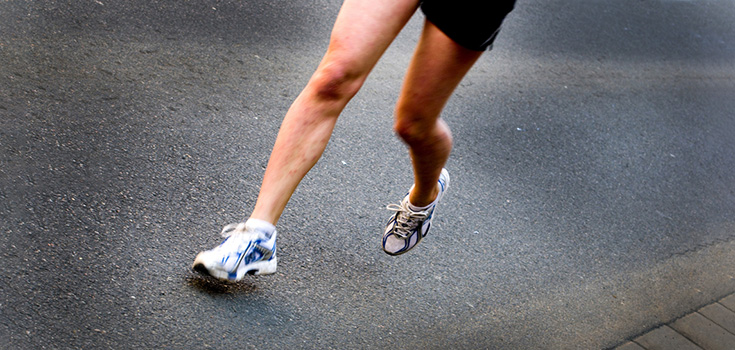How to Recover from Exercise and Prevent Overtraining

Running is one of the best training exercises that you can do on a regular basis. Nevertheless, do too much of it, and you can expect to suffer from the crippling condition known as overtraining. Overtraining is an absolute nightmare for any runner or exercise enthusiast. Given the simplicity of how overtraining can occur, most runners and individuals taking exercise seriously are prone to suffer from this condition at least once in a lifetime.
If you’re looking to join the ranks of regular runners without suffering through the pains and aches of overtraining, here are some of the best training strategies that can help you spot, prevent and treat the nightmare of overtraining.
What is Overtraining?
Overtraining for runners is defined as running too much too soon without providing the body with enough recovery between each session. Normally, your body enters a state of recovery after a workout and muscles ultimately grow and become stronger, but overtraining stops the progress from occurring.
For instance, if you add too much distance, speed or hill running, you will undoubtedly increase the likelihood of injuries and the occurrence of overtraining. The golden rule of injury-free running is to start slowly and build the intensity gradually. Violate this rule and expect trouble along the way.
Signs of Overtraining
Luckily, overtraining does not occur overnight. The dreadful condition fosters slowly as the training progresses forward until it reaches hazardous terms. The good news is that overtraining leaves clues; and by learning to sport these traces, you’ll be able to keep it at bay and stop it before it gets any worse.
Here are some of the well documented warning signs:
- Overall fatigue and nausea
- Loss of appetite
- Unwanted weight loss
- Insomnia
- High occurrence of chronic discomforts and injuries
- Decreased physical and mental performance
- Slow recovery between each workout
- Lack of sex drive
The combination of three or more of these symptoms is a sure sign of overtraining or its occurrence is imminent. Therefore, if you’re suffering from any of the above conditions, be extremely wary. Pushing ahead with the training will only make it worse. Instead, make sure to follow the below treatments measures.
How to Recover and Treat Overtraining
The root-cause of overtraining is the lack of recovery between each training workout. Therefore, your best line of defense against this dreadful condition is to take plenty of days off from training to allow for recovery and rejuvenation. The length of the recovery period depends, for the most part, on exactly how and for how long you’ve been overtraining.
For a mild case of overtraining, taking a couple days off the training wagon may prove enough. Nevertheless, for serious cases, taking more days or ever weeks off is the way to go. Forcing your body will only produce dire consequences and compromise the quality of your life. Running is supposed to make life happier, not the other way around.
In addition to resting, you can speed up the recovery period by doing the following:
- Ice the sore muscles 2-3 times per day.
- Eat for recovery. Increase your protein intake as it’s crucial for rebuilding damaged muscle tissue and speeding up recovery.
- Cross-train. Instead of being sedentary, opt for other training regimes such as walking or yoga to keep your body engaged.
Prevention is better than a cure. This well known cliché runs true through all areas and walks of life. So it’s always better to take the right precautions than to suffer the dire consequences. As a result, make sure to run within your fitness level, listen to your body and adjust your training approach accordingly.
